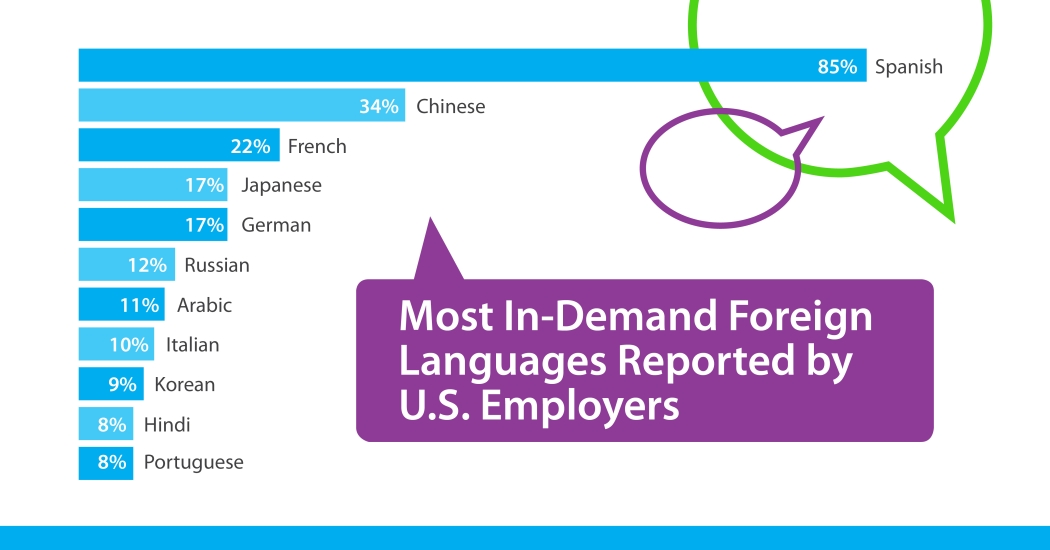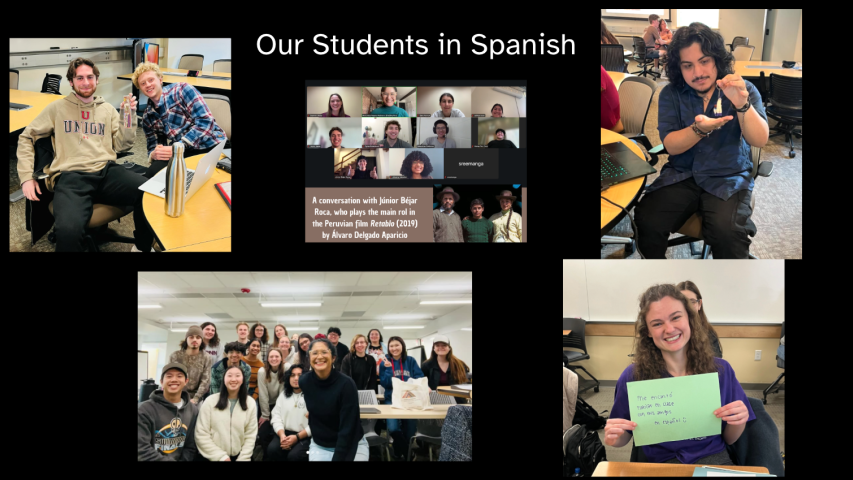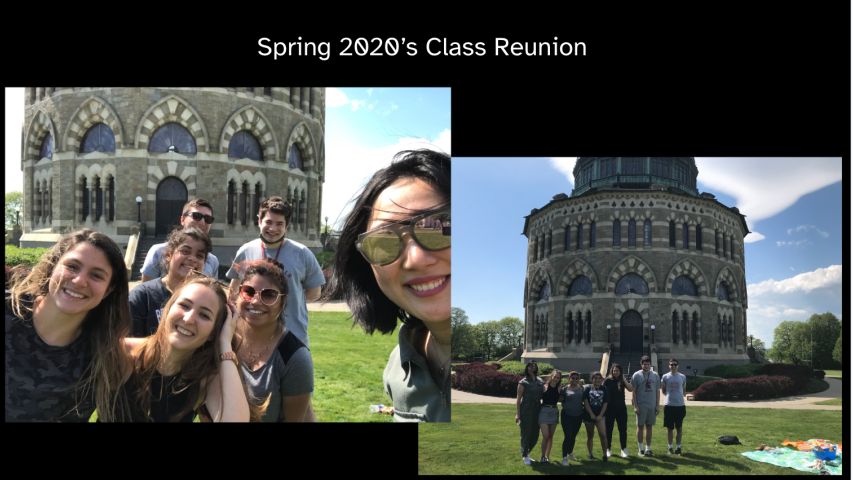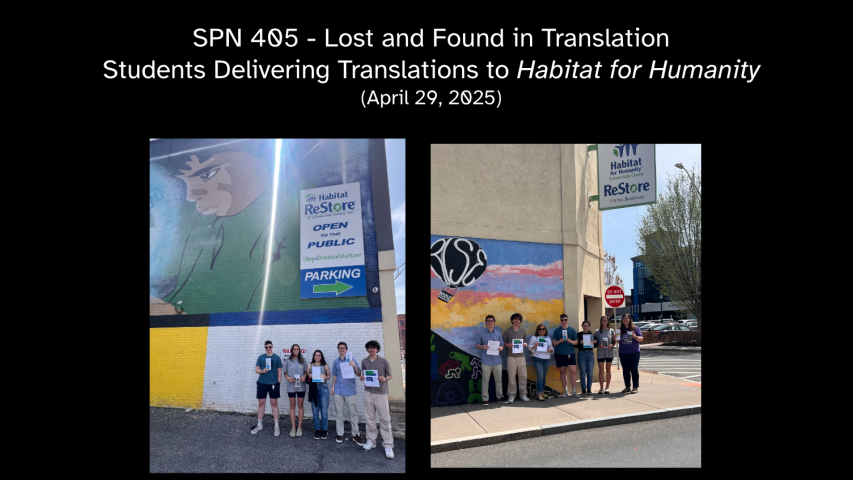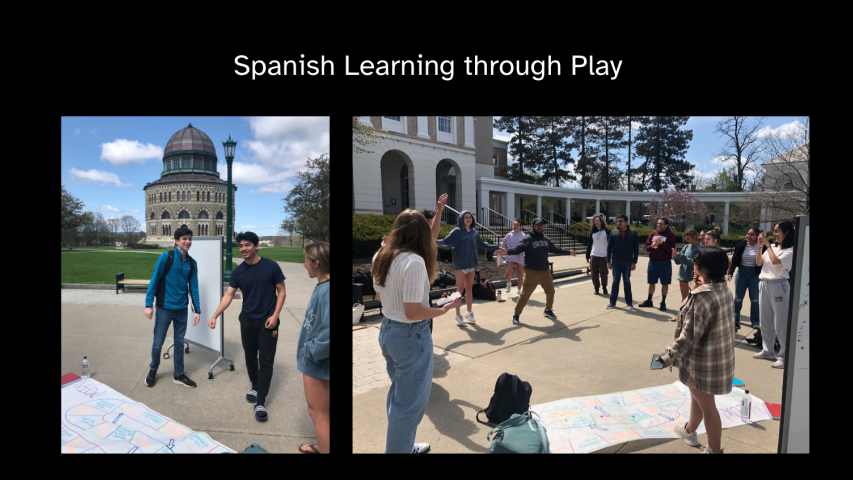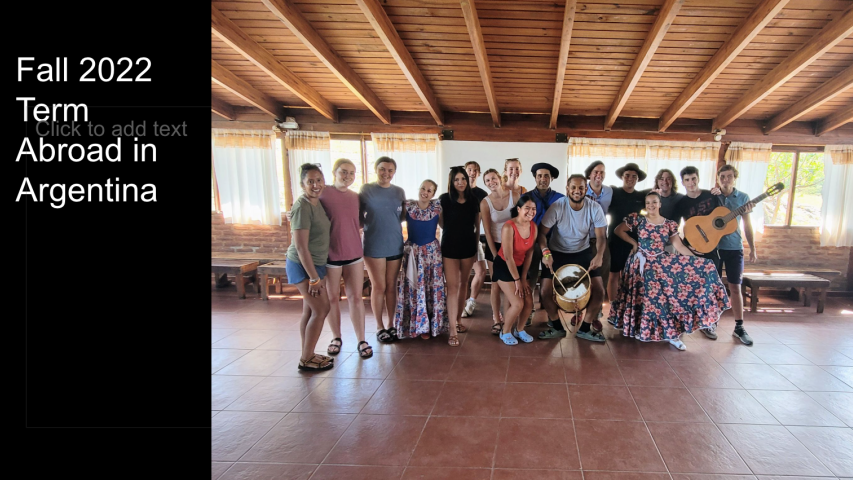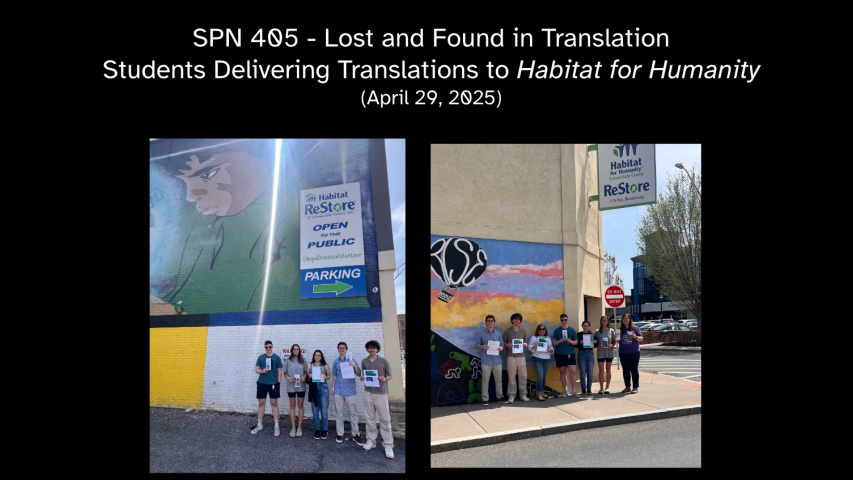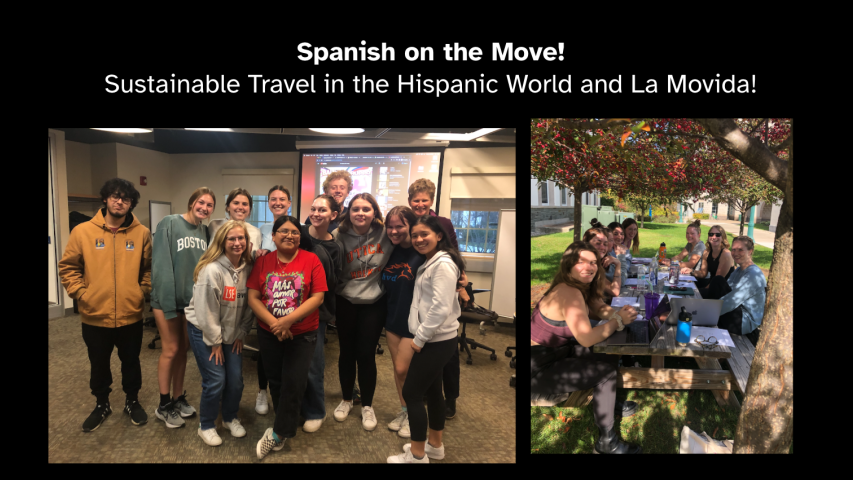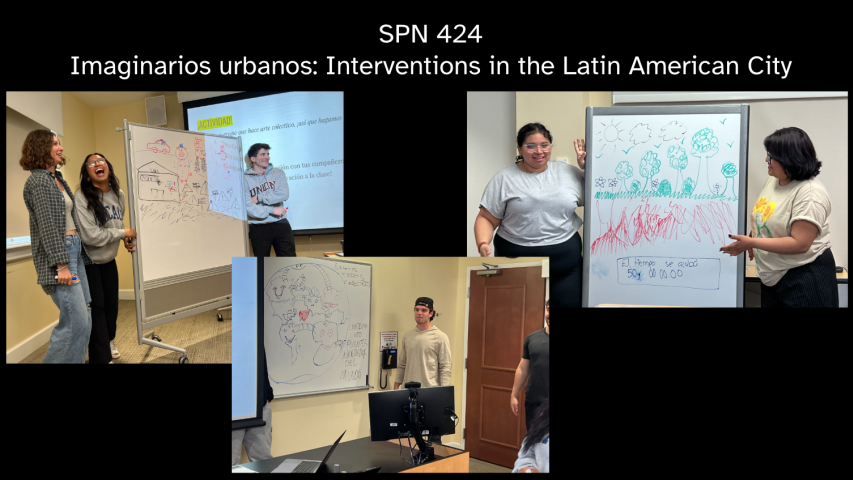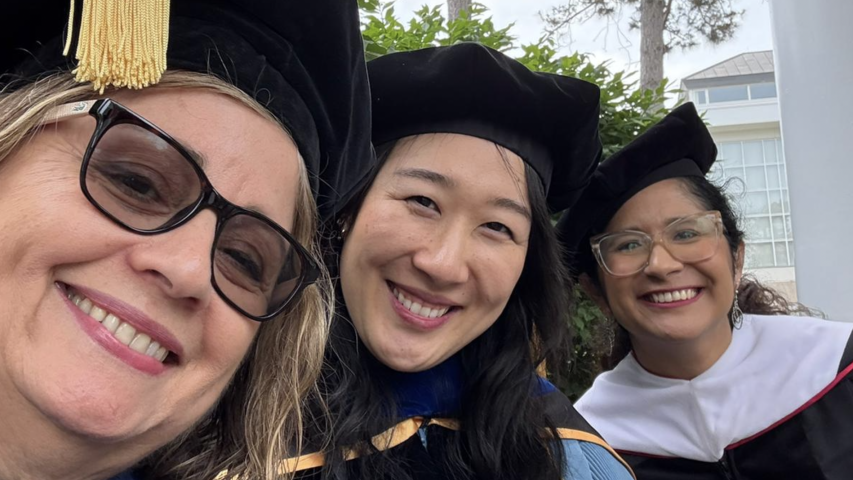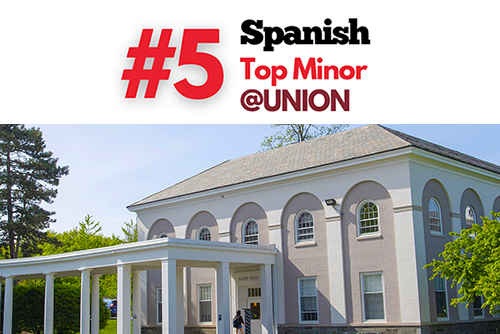From the moment you step foot in our classrooms, you become part of a caring community that emphasizes the importance of faculty-student interactions, student-centered learning, immersive and hands-on projects, deep critical and analytical thinking, and highly creative and innovative applications across a broad set of technologies, disciplines and professional fields.
We have designed our curriculum with you in mind!
We offer all levels of learning in Spanish in addition to an exciting array of classes in English. Beginning in the intermediate Spanish sequence (SPN 250-299), you can take classes that develop your language, culture and communication skills across multiple fields. Our courses provide you with a broad set of perspectives, vocabularies, and approaches that you can apply to your interests, your careers, and your life, exploring themes like:
- Sustainability and Environmental Studies
- Health, Medicine, and Wellness
- Social Innovation and Entrepreneurship
- Translation and Communication for the business world
- The Apocalypse and Hauntings (do you like horror movies?)
- Immigration and Border Studies
- Minority and Indigenous Studies
- Intervention and Activism, among many others!
We invite you to explore culture, careers, and creative expression
Our classes will engage you with peer conversation partners, career development events, fun clubs and activities, and authentic materials through VR, social media, videos and films, newspapers and podcasts, blogs, poetry and short stories, video games, and other storytelling platforms.
Our classes and our faculty-led mini and full term abroad offerings—to Spain and Argentina—as well as our language clubs, are all about immersing you into the Spanish culture and language through hands-on projects, first-hand experiences and internships, digitally connected and engaging projects using technologies like your phone apps, virtual and augmented reality, video editing, story mapping, blogging, op-ed writing, and so much more.
(Graph created by ACTFL)
You can design your own future!
Every year our students gain minors, majors, double majors, or interdepartmental majors (what’s that? well, imagine taking two majors and smashing them together to become an ID Major). And did you know that you can even create your own major at Union College called an “Organizing Theme Major?” This is an option through which the study of Spanish language and culture can lead to exciting results.
We have one of the highest numbers of students gaining Minors and Majors at Union College. These students have second majors in fields like Economics, Environmental Engineering, Biology, Political Science, Computer Science, Visual Art, Anthropology, Biology, Sociology and more.
Join Us!
We hope you will join us, a group of highly dedicated, energetic, and multicultural and multilingual faculty to expand your vision and understanding of yourself and others. We know the impact that the learning of Spanish language and culture can have in your life, your career, and your community.
